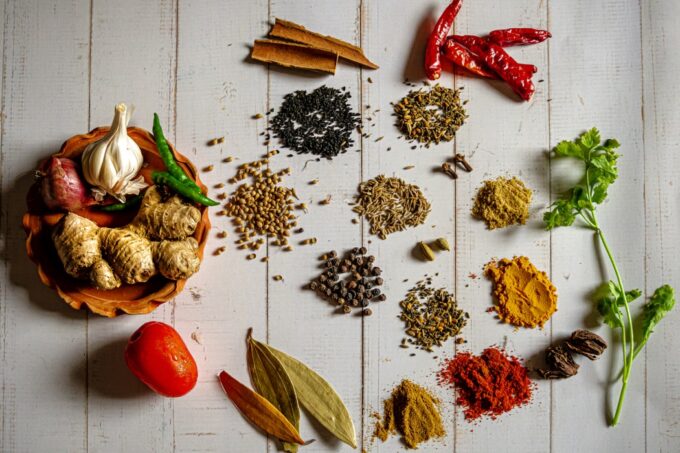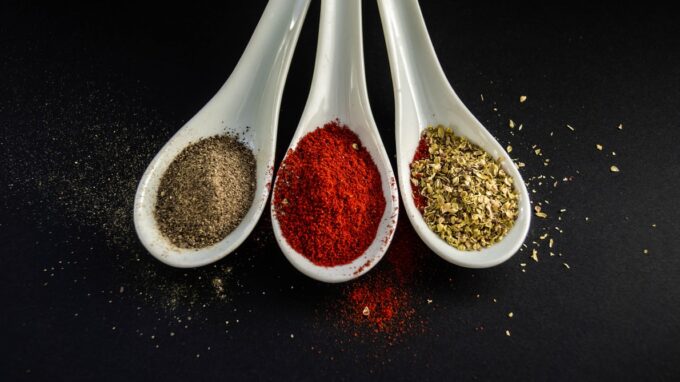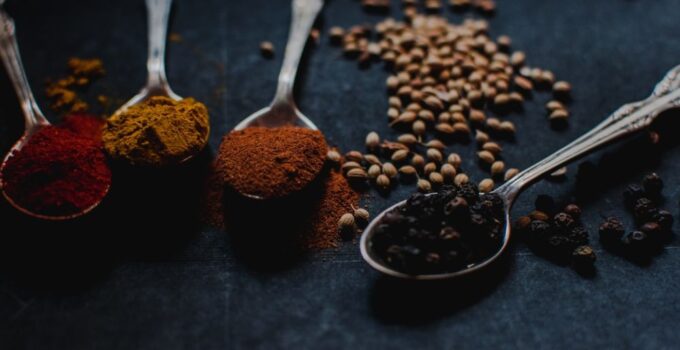The world is full of different things. Whether it is different types of vegetables, fruits, or herbs, human beings have been using the many gifts of nature since ancient times. One such unique gift from nature that is in abundance is herbs and spices. Ever since human being learned to cook food, they have been exploring different types of herbs, shrubs, and spices to improve the flavors.
If you are interested in trade and history, you will know how Europe came to learn about different spices that were indigenous to the Caribbean, middle eastern, and Asian lands. However, they bought these herbs and spices to light, and they hold a special position in the culinary world today.
Every cuisine has its own way of delivering flavors. There is always a signature ingredient hidden in every cuisine without which their dish seems incomplete. For instance, Italians use herbs like basil, thyme, rosemary, the Middle eastern use sumac, Indians use turmeric and cumin, etc.
Having authentic and fresh spices in your kitchen pantry is a pleasure. If you love to collect indigenous herbs and spices and looking for a marketplace that offers authentic, organic, and natural ingredients without artificial flavor, click here.

img source: unsplash.com
No matter wherever you go, you will always find a spice or herb taking over that place and its cuisine. This is how important spices and herbs are. Although many people think these herbs and spices only add flavor to the dish. But it is not true! In reality, there is a lot more to these than mere flavors. If you are wondering what other health benefits these spices and herbs offer, you will be amazed to know. For centuries, healers have been using several spices for the purpose of their health benefits and healing properties. For instance, turmeric is known for its antibacterial properties, and it is widely used to heal wounds. Similarly, black peppercorns help in improving your digestion and maintaining the health of the digestive tract.
Thanks to the increasing trend of cooking all over the world, today you will find several restaurants as you go out. And because it has increased familiarity with the flavors, it has also increased interest in using the many different types of herbs and spices. However, because every spice is different, comes from a different land, and is grown in different conditions, you need to keep in mind the difference was to keep it fresh.
Here are a few tips that will help you in handling, storing, and using a few herbs and spices:
Checking the freshness level

img source: unsplash.com
Before you use a herb or spice, the first thing you need to notice is whether it is fresh or not. Although these stay fresh for a longer period, if not treated well, they can go bad. For instance, if they develop moisture, they can get spoil easily. So, before you use them, take some time to follow these steps:
- If you are familiar with the natural aroma of herbs and spices, you will instantly know if it is fresh or not. Fresh herbs and spices have a unique and story aroma.
- You can also judge the freshness level by looking at its color. If the color seems vibrant, it means it is fresh. As time passes by, the herbs and spices tend to lose their color along with flavor.
- As you touch and rub it in your hand or finger, notice the texture. If it seems wet and flaky, it is not fresh. Also, if its aroma stays on your hand, it means it is fresh.
- If it is caky or clumpy, it means it is a victim of moisture. Moisture ruins the flavor and freshness of the spices and herbs.
The proper way of storing

img source: unsplash.com
Herbs and spices can stay fresh for ages only if you properly store them. Because they come in different forms, the shelf-life can vary. Here is a quick review of an average shelf-life of a spice or herb:
- Seeds and whole spices: Black peppercorns, white peppercorns, cumin, mustard seeds, etc., are a few examples that fall in this category. If you store them in a dry, air-tight container, they are good to go for 4-5 years. And sometimes even more.
- Powdered: Red chili powder, turmeric powder, coriander powder, etc., are some exampled ground spices. If you store them properly in a dry container in a cool, dry place, they will stay good for about 3-4 years.
- Herbs: Although fresh herbs don’t stay fresh for quite a long time, you can store them after drying the leaves, dried herbs have a stronger flavor and aroma, and they stay fresh for about 3 years. Again, you have to make sure you store them in a cool, dry container.
- Storing in a refrigerator: spices like paprika, cayenne, red chili powder can easily be stored in the refrigerator. It not only keeps it fresh but also prolongs its flavor and life.
Drying herbs

img source: unsplash.com
It is a process that has been going on for centuries. Many people still dry their herbs and spices. It not only increases their shelf life but also increases their flavor strength. For instance, you can dry fresh thyme, rosemary, and basil leaves. You can also dry fresh red chilies. Some people do this in a dehydrator, but the traditional method involves placing them under direct sunlight. Drying herbs make them available around the year and is also very convenient.
Understanding different flavors
It is crucial that you understand the flavors of the spices and herbs, especially when you plan on blending them. You can’t blend two strong flavors together. It will ruin the flavor. Similarly, you can’t blend to mild flavors.
To create the perfect blend, you need to pair flavors in such a way that they complement each other. For instance, blending sweet with savory and chili flavor creates a perfect blend. Creating a perfect balance is the main secret behind creating a delicious flavor.







